The U.S. Federal Reserve has purchased oodles of assets with electronic currency credits. Funny money. Ditto for the Bank of Japan, People’s Bank of China, and the European Central Bank.
Not surprisingly, the more that central bankers add assets to their collective balance sheet, the more that the money has supported a colossal asset bubble.
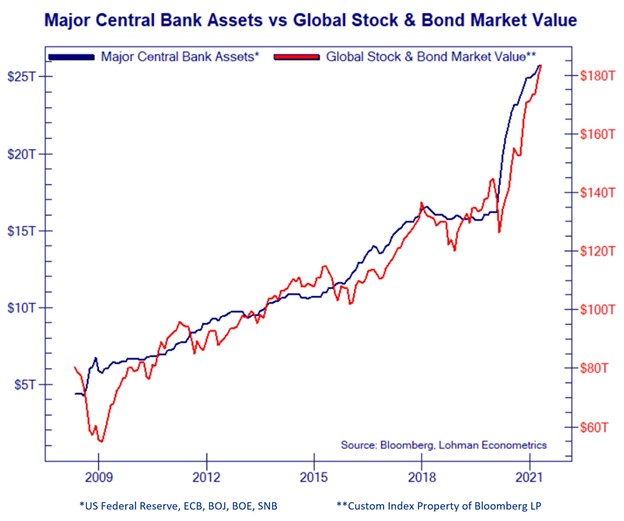
Bear in mind, easy money central banking has been favoring the wealthiest among us. The net worth of the “Top 1%” relative to all others is higher than it has been in many decades.
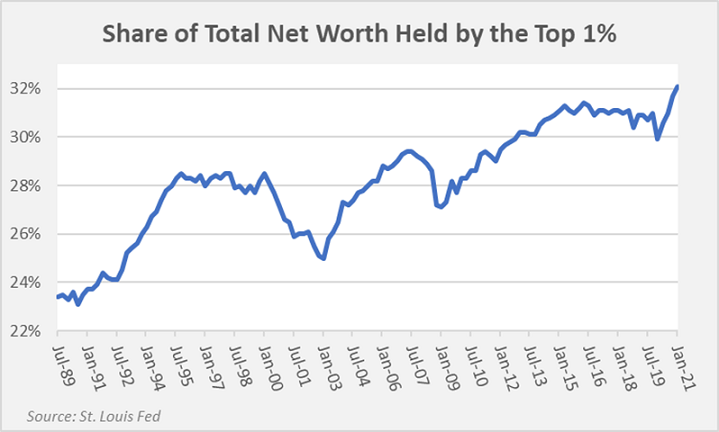
If systems like the Federal Reserve continue to send stock, bond and real estate prices into orbit, will society begin to question the policies? By extension, if pressure mounts on policy makers to change course, could the stock bubble pop?
Yes and yes.
Absent the Fed and other central banks around the globe, there are few reasons to expect stocks to remain at lofty elevations. Prices relative to 10 years of corporate earnings are decidedly unattractive.
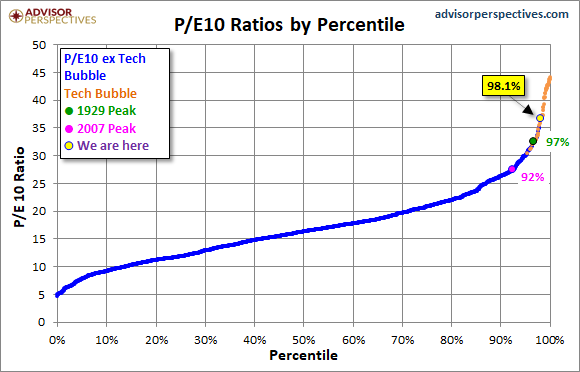

There are even signs that appetite for risk is waning. For instance, smaller company stocks in the Russell 2000 ETF (IWM) are drastically underperforming larger company stocks in the S&P 500 (SPY).
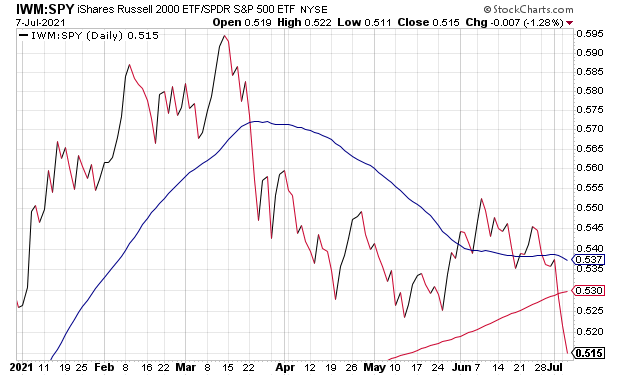
Similarly, 10-year Treasury yields had risen dramatically in the first quarter of the year. Pundits were insisting that bond yields could only go higher and that risk-off bonds could only go lower.
The 10-year Treasury has since dropped from 1.75% all the way down to 1.29%. It seems that some participants are preparing themselves for a stock storm.
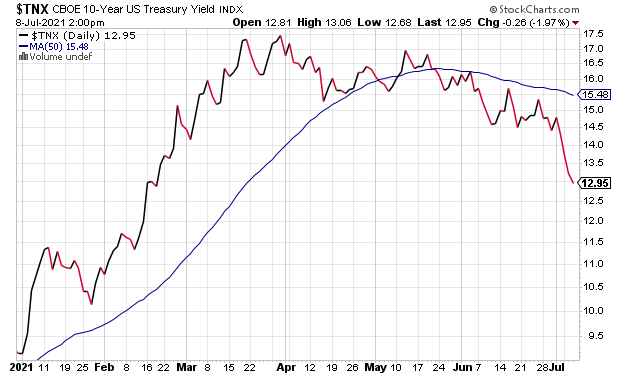
Would you like to receive our weekly newsletter on the stock bubble? Click here.
